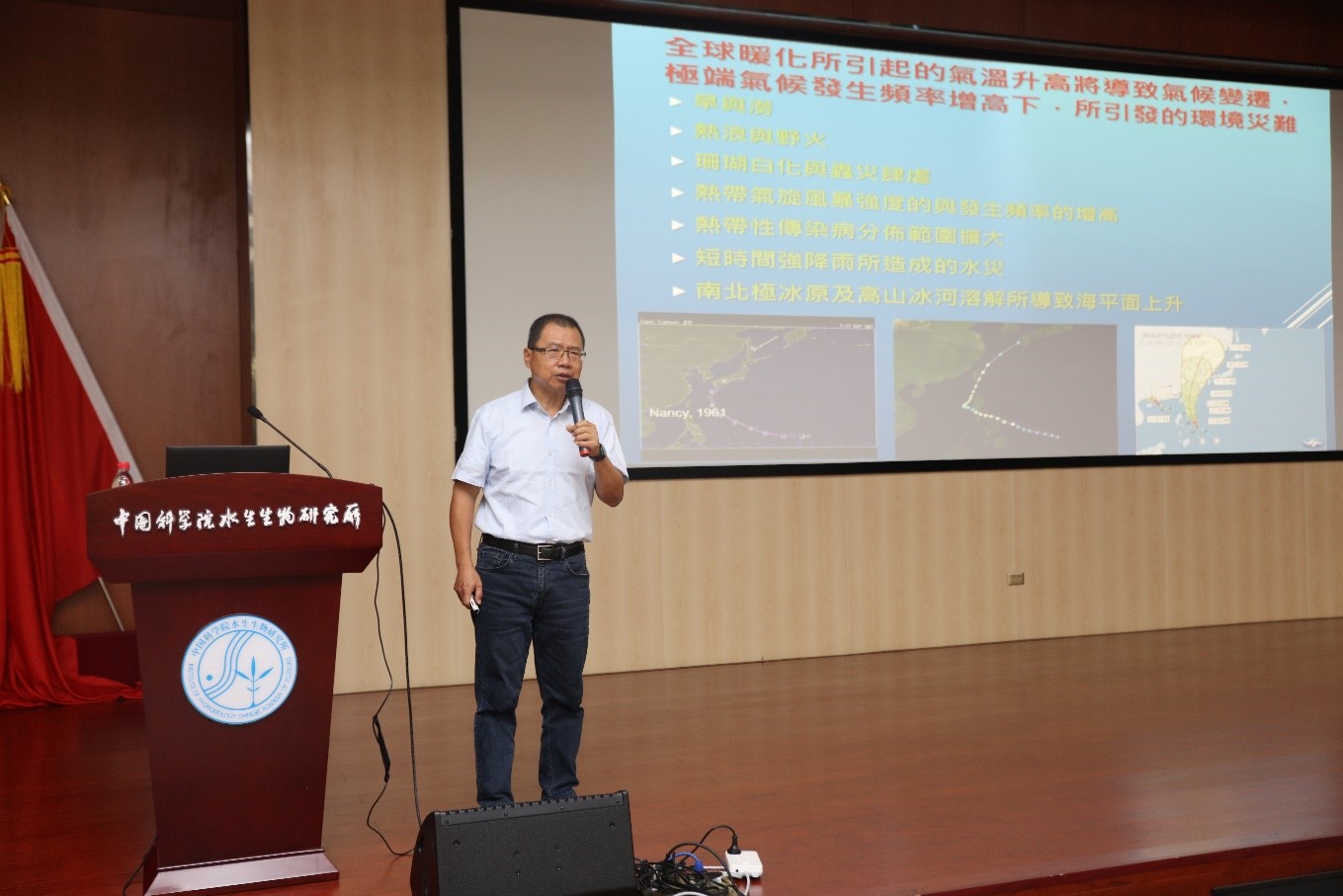
Newsroom
Professor from Sun Yat-sen University in Taiwan Visits IHB

Professor Lei Yang from Sun Yat-sen University in Taiwan visited IHB on August 15, 2023. (Credit: IHB)
Professor Lei Yang from Sun Yat-sen University in Taiwan was invited to the Institute of Hydrobiology (IHB) of the Chinese Academy of Sciences on August 15, 2023 for an academic exchange where he delivered a lecture on the topic "The Influence of Constructed Wetlands on Achieving Dual Carbon Goals."
In his lecture, Professor Yang delved into the impact of human activities on carbon cycling within the Earth's biosphere, emphasizing the growing severity of extreme climate conditions. He proposed relevant strategies to promote "energy conservation and carbon reduction" to stabilize climate change.
Yang concluded by highlighting the crucial role of constructed wetlands in both carbon sequestration and emission reduction. He supported his points with case studies analyzing the carbon budget of different types of wetlands and further dissected the factors and mechanisms influencing greenhouse gas emissions from wetlands.
Professor Yang holds the position of a full-time professor in the Department of Marine Environment and Engineering at Sun Yat-sen University in Taiwan. He is also the director of the Water Resources Research Center at Sun Yat-sen University. His primary research focuses on environmental and ecological engineering, covering areas such as wastewater biological treatment technology, ecological engineering for wastewater treatment in constrcuted wetlands, wetland ecological restoration technology, and emergency response to marine oil spills, ship ballast water treatment, and management.
In 2012, Yang was appointed as a visiting professor at IHB. In collaboration with IHB Prof. WU Zhenbin, Yang initiated and successfully hosted the Cross-Strait Symposium on Constructed Wetland starting in 2008. This symposium has established a platform for regular exchanges between construced wetland researchers on both sides of the Taiwan Strait, promoting the ecological environmental protection.